
Cardiac Tests
Electrocardiogram (ECG)
This a standard investigation in a cardiology assessment.
The electrical activity of the heart is recorded using 10 stickers placed on your chest and limbs. This allows your cardiologist to assess the electrical activity of your heart and is important in diagnosing electrical and structural problems within the heart.
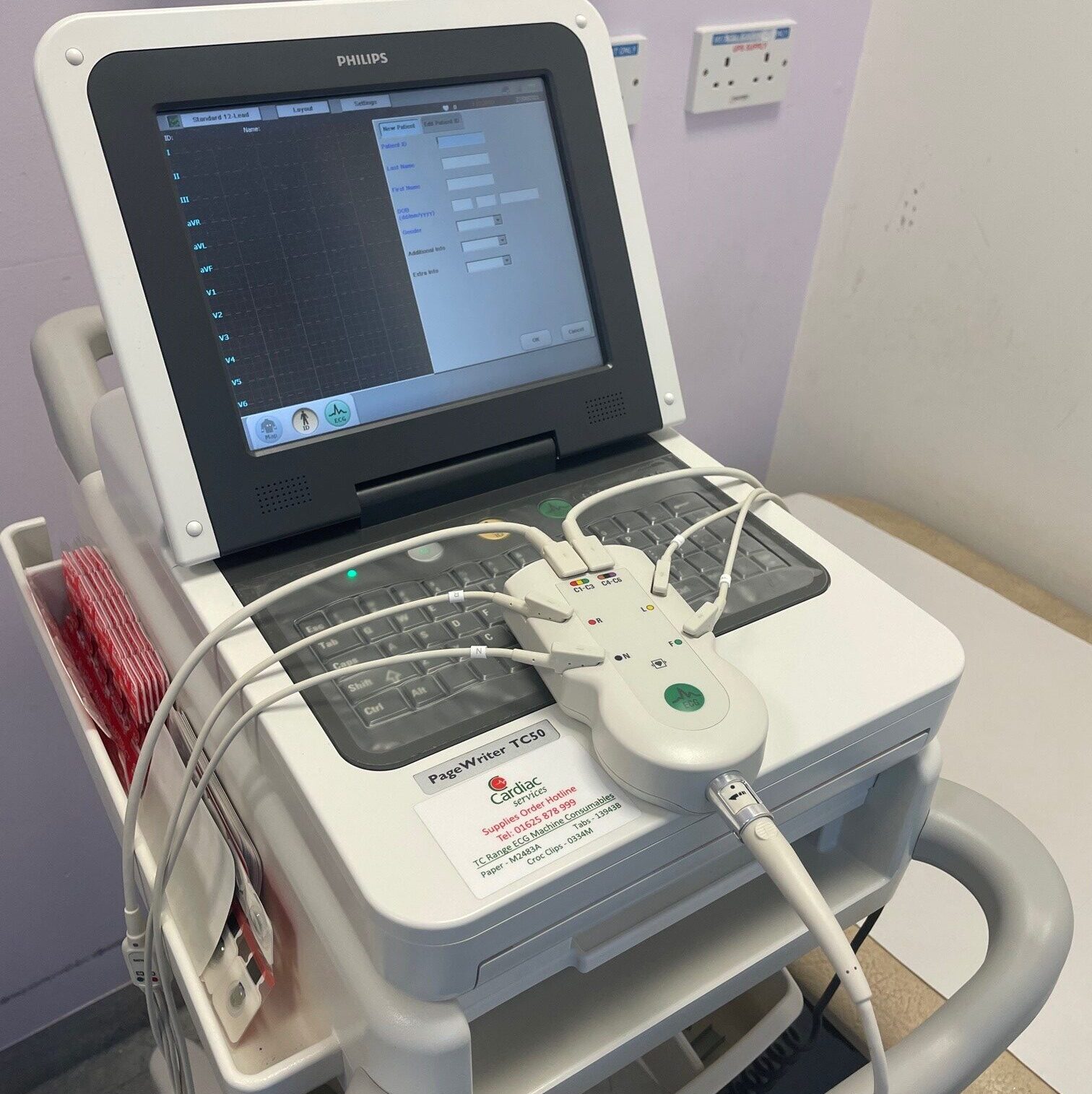
Ambulatory Monitoring
This allows your cardiologist to assess your heart rhythm or blood pressure whilst you are going about your normal daily activities. This is especially helpful for patients suffering from intermittent symptoms of palpitations or arrhythmias and also to help identify patients with hypertension (high blood pressure). The device is worn under your clothing and stores the information on a memory card for your cardiologist to review.
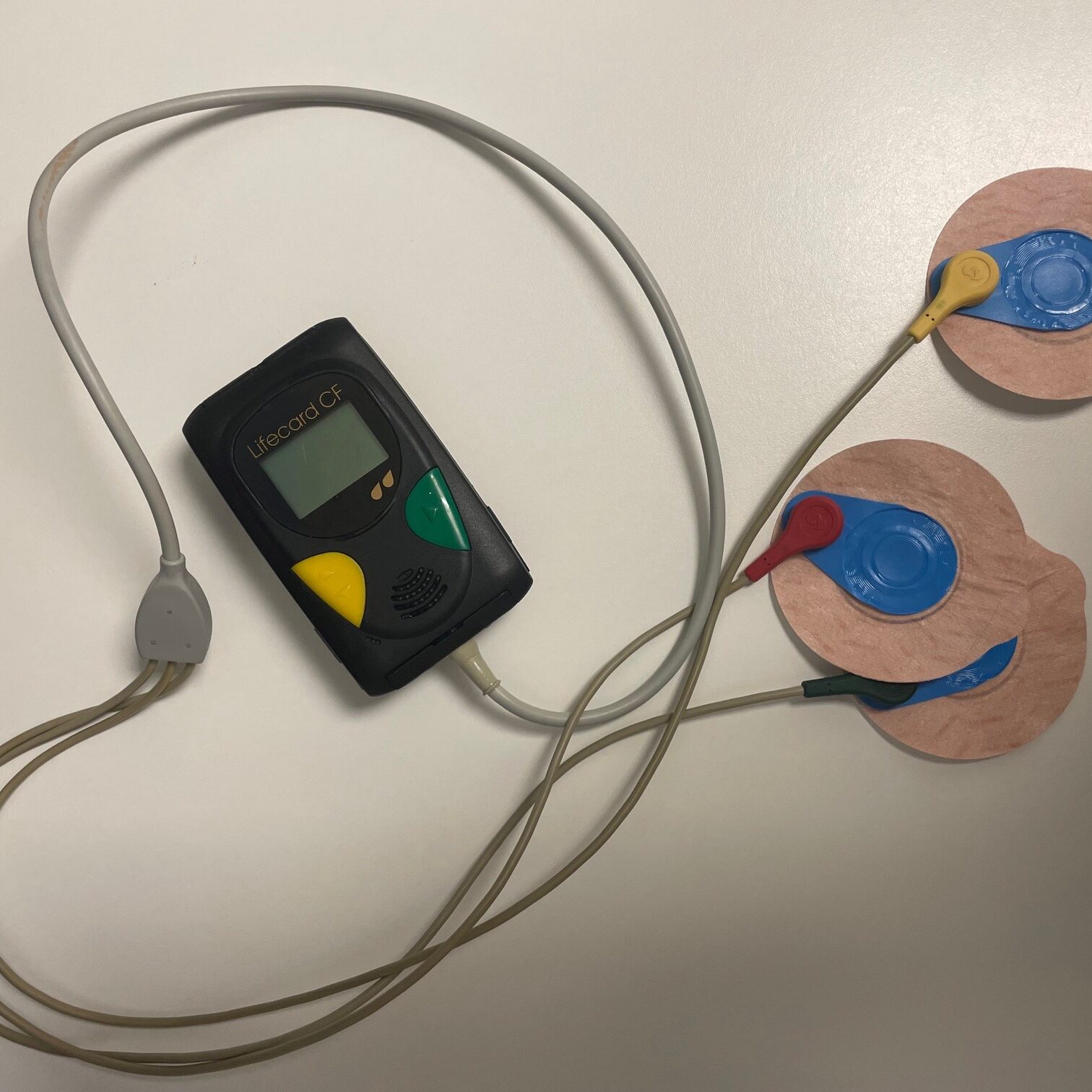
Exercise Testing
Exercise testing involves walking on a treadmill whilst attached to an ECG recorder and blood pressure monitor. This is useful in diagnosis of chest pain but is also used for medical assessment for occupational assessment, for example in pilots or HGV drivers.
During the test the treadmill starts at a slow pace and gradually increases speed and steepness. The tests are supervised by your consultant who monitors the ECG and your BP throughout the assessment.
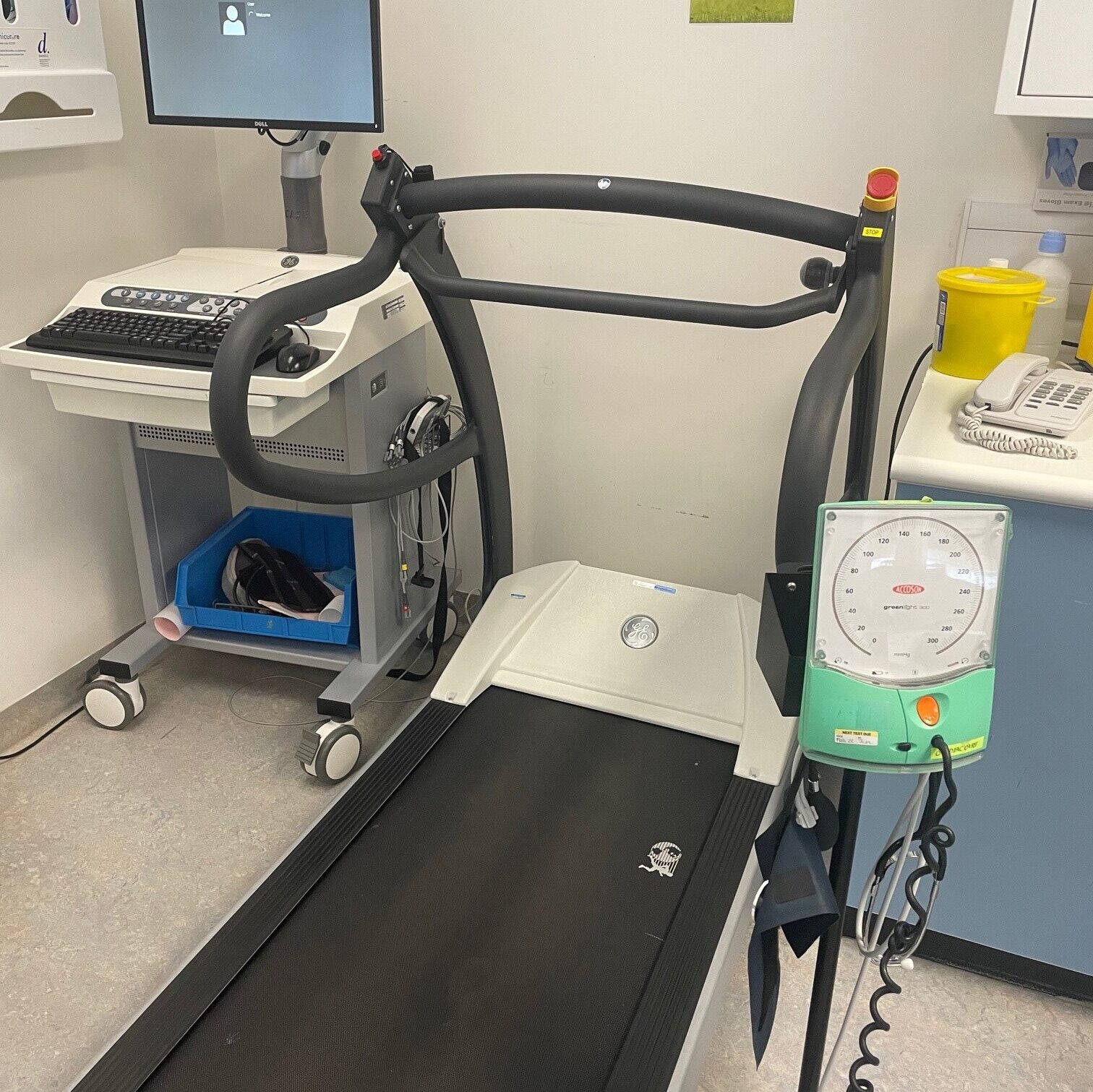
Echocardiogram / Transoesophageal Echocardiogram (TOE)/ Stress echocardiogram
These tests all use ultrasound to build up a picture of the heart structure and function. Standard echocardiography is undertaken by pacing a small probe on the front of your chest and moving this to various locations to build up a 3D image of the heart.
A more invasive technique involves utilising a small ultrasound probe on the end of an endoscope. This is passed through the mouth into the gullet allowing detailed imaging of the heart. This is carried out as a day case procedure under local anaesthetic.
A stress echocardiogram combines a standard ultrasound with either exercise or the administration of medications to increase your heart rate. This is another way to assess the blood supply to your heart and valve function. It is undertaken by your cardiac consultant.
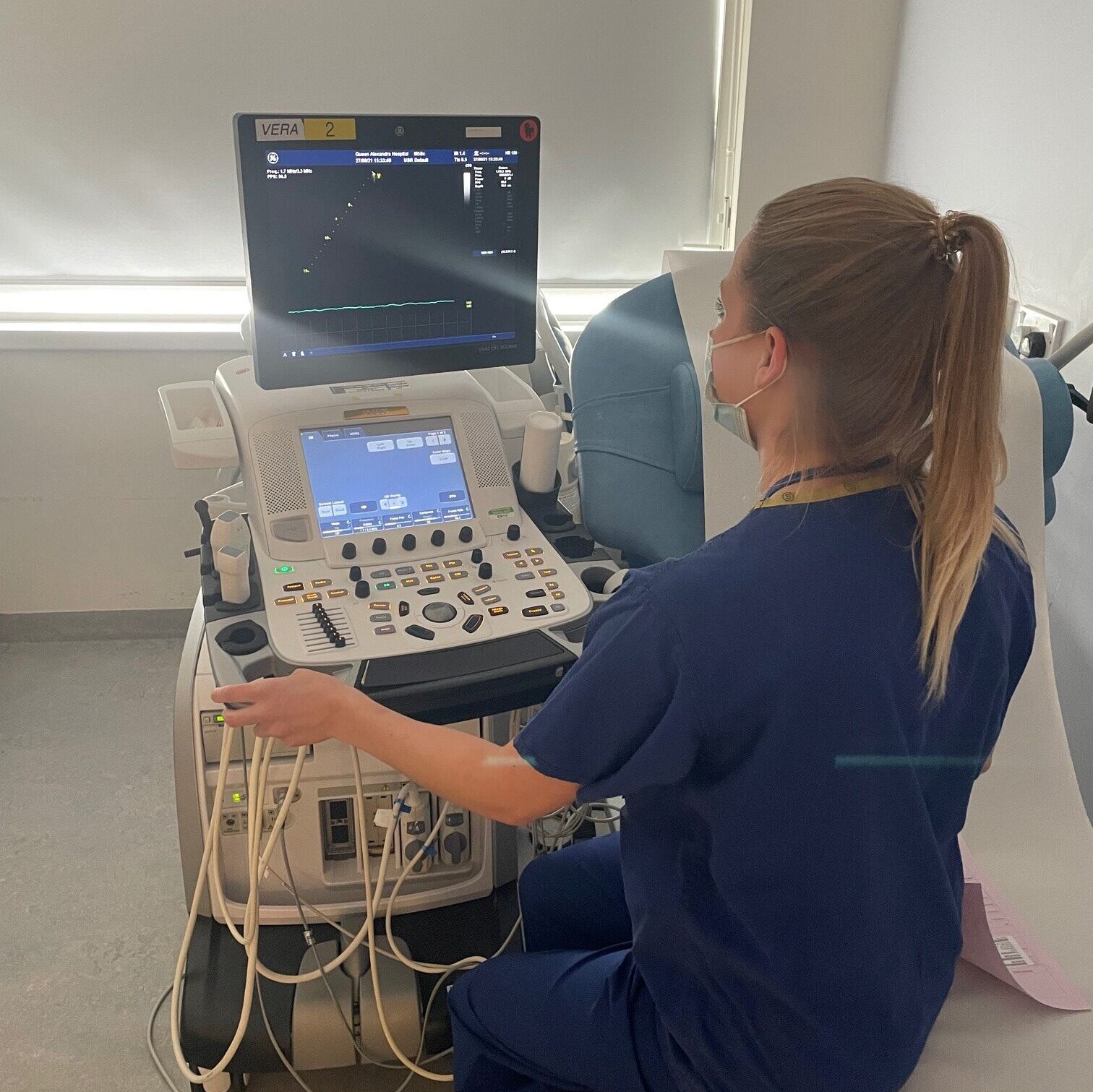
Invasive
In certain situations your cardiologist may recommend a more invasive test. These will usually be undertaken at the Queen Alexandra Hospital, Portsmouth. The most common test would be a coronary angiogram which involves the insertion of a small tube, usually in the wrist, to pass a catheter into the heart. This allows x-ray dye to be injected directly into the heart to assess for any narrowings or blockages.
This is usually carried out as a day case procedure. If a significant narrowing is identified then it may be possible to proceed directly to treatment with the insertion of a stent. Your cardiologist will discuss the procedure and all your options at the time of your consultation.
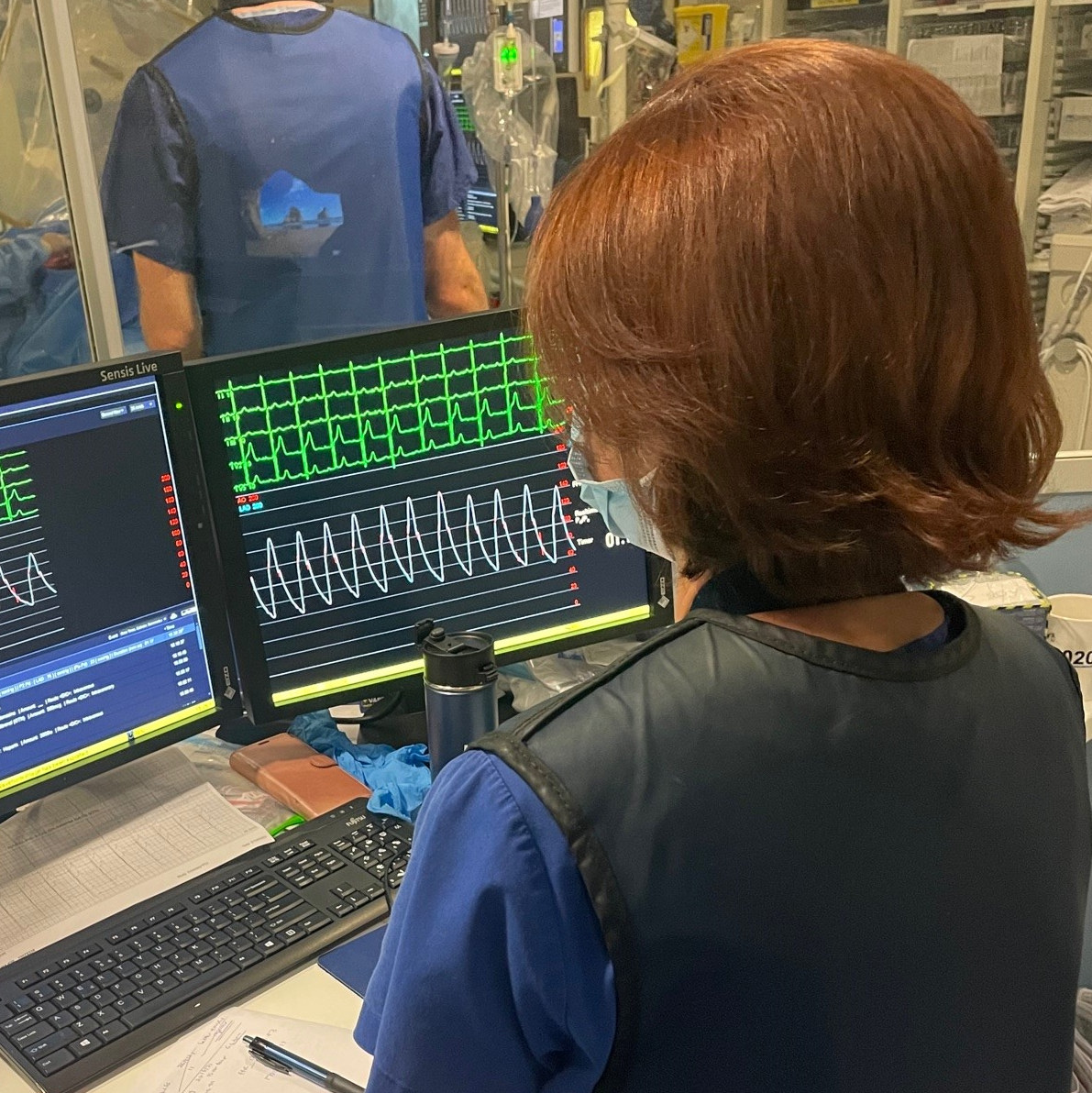
Locations
Outpatients
Spire Portsmouth,
Bartons Road,
Havant,
Hampshire
PO9 5NP
Outpatients, Inpatients and Day Case procedures
Harbour Private Patient Unit,
Queen Alexandra Hospital,
Southwick Hill Road,
Portsmouth, Hampshire,
PO6 3LY
Contact us to discuss your cardiac needs
Leave us a few details about your enquiry and a member of our team will contact you as soon as possible
